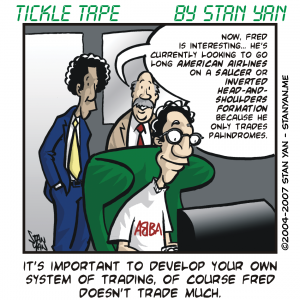In this column, we often summarize research studies from the emerging field of behavioural finance. In contrast to traditional finance and economics, which tries to look only at concrete indicators in an attempt to make accurate economic forecasts, behavioural economists assume that forecasts are prone to inaccuracy. People make forecasts and people are fallible; they are “irrational” in that they don’t base their decisions on a logical analysis of all available information. Instead, they use “rules of thumb” and shortcuts. The use of these shortcuts often produces inaccurate predictions.
According to behavioural economists, it’s because people use these shortcuts that stock prices are more of a reflection of “investor psychology” than traditional fundamental indicators. The work of Daniel Kahneman has influenced many behavioural economists. In a number of illuminating experiments, Kahneman, and his late colleague Amos Tversky, demonstrated that humans are risk-averse and inefficient processors of information. They make quick and dirty decisions rather than ones based on careful logic. Some of the heuristics that have been applied to the understanding of the markets are the availability heuristic (believing a stock or sector will go up in price because it is easy to recall similar instances from memory) and the representativeness heuristic (if a stock has characteristics that are similar to a kind of stock that usually goes up, then it will go up).
From the vantage point of a psychologist, it is not surprising that economists have had difficultly making market forecasts: Investors’ behaviour is hard to predict. Psychologists, such as Clark Hull, tried to predict behaviour in the 1940s and found they could not. Since then, they have known that it’s difficult to predict people’s behaviour, and thus, the financial markets. But what have economists been trying to do? It seems as if economists have been fruitlessly trying to develop complex mathematical models to predict the markets.
Many people believe it is possible to develop such models, and at the same time, view investment psychology as on the periphery, misguided, or a little “New Agey.” If you think that, consider this: Last week psychologist Daniel Kahneman won the Nobel Prize for Economics. Perhaps winning the award may not change the minds of some folks who just find psychology full of “psychobabble.” And winning a Nobel Prize doesn’t prove the validity of a theory (Remember Scholes and Merton’s involvement in LTCM). But perhaps more people will consider the findings from investment psychology and behavioural finance more seriously. We hope they will.


